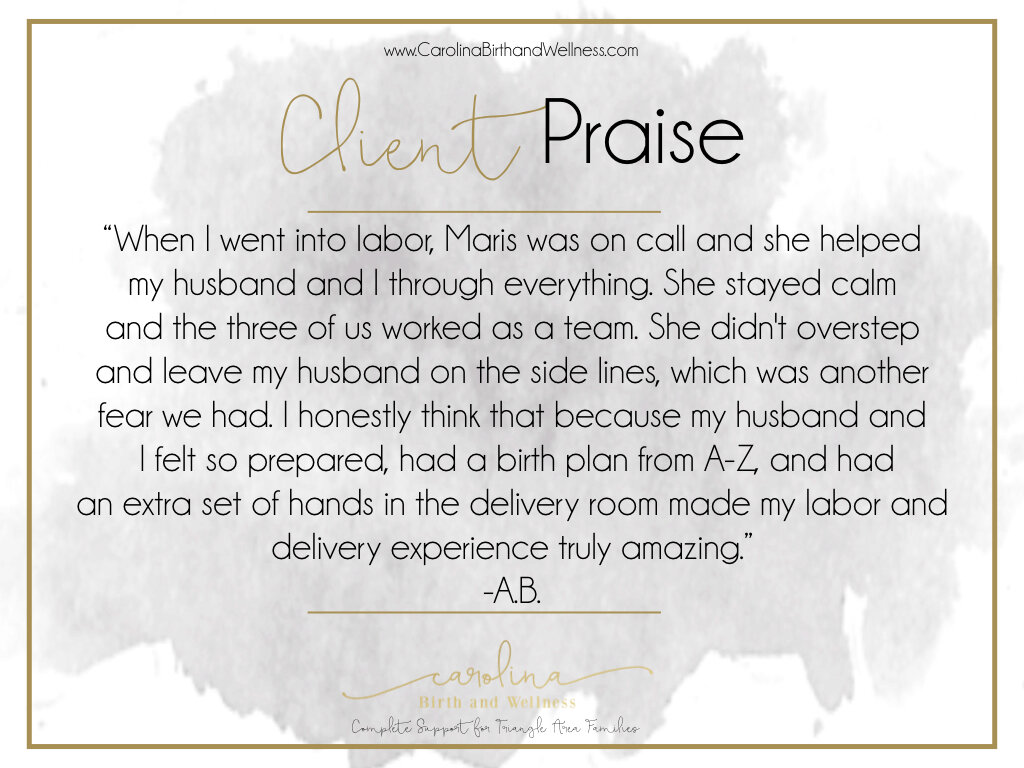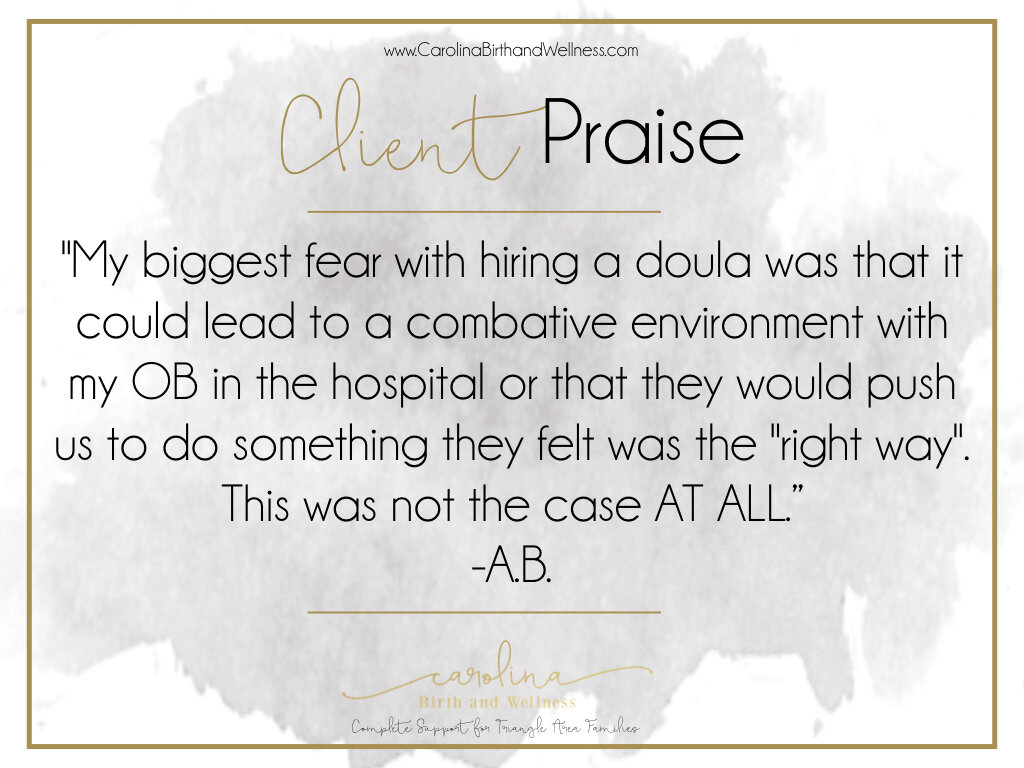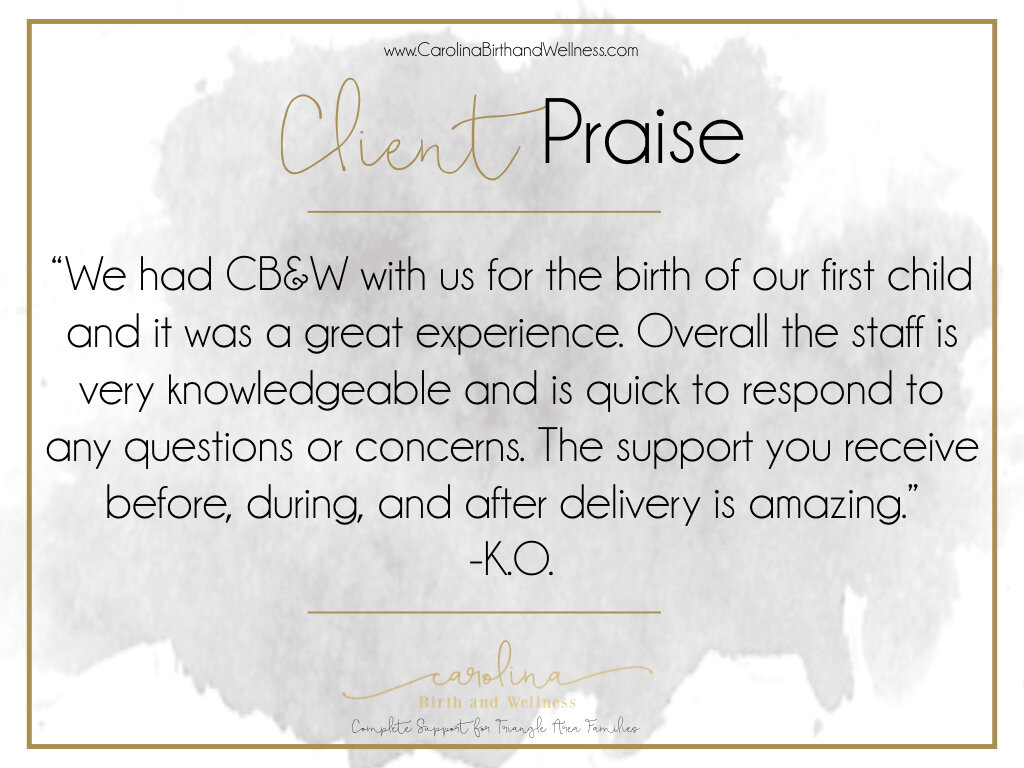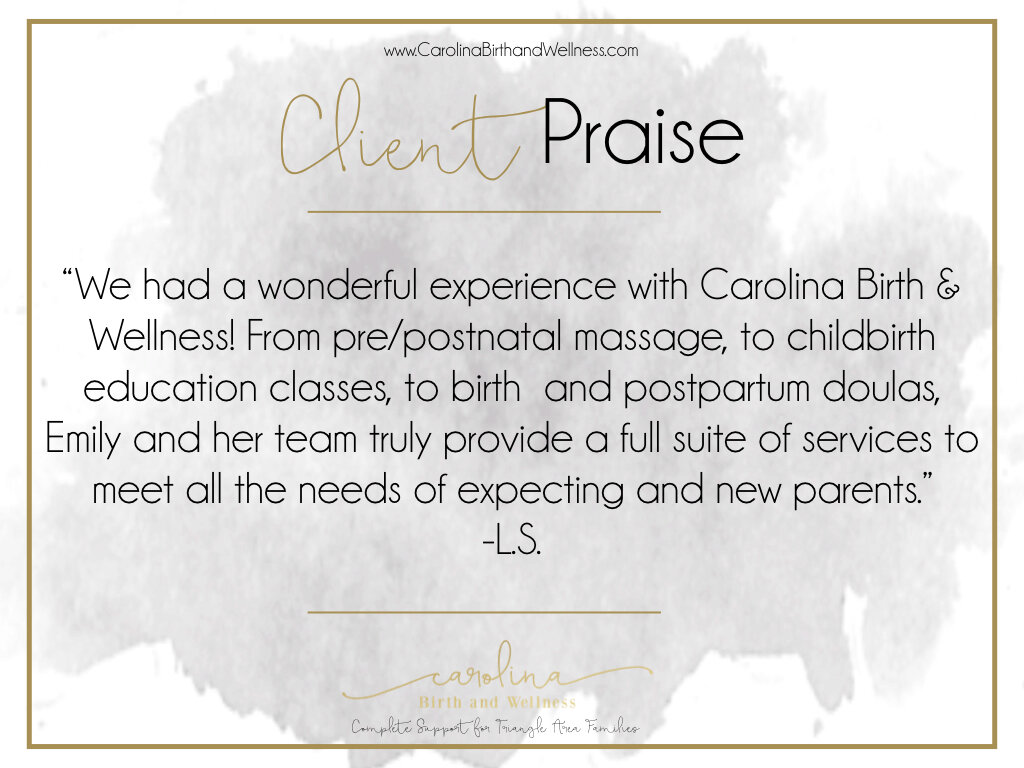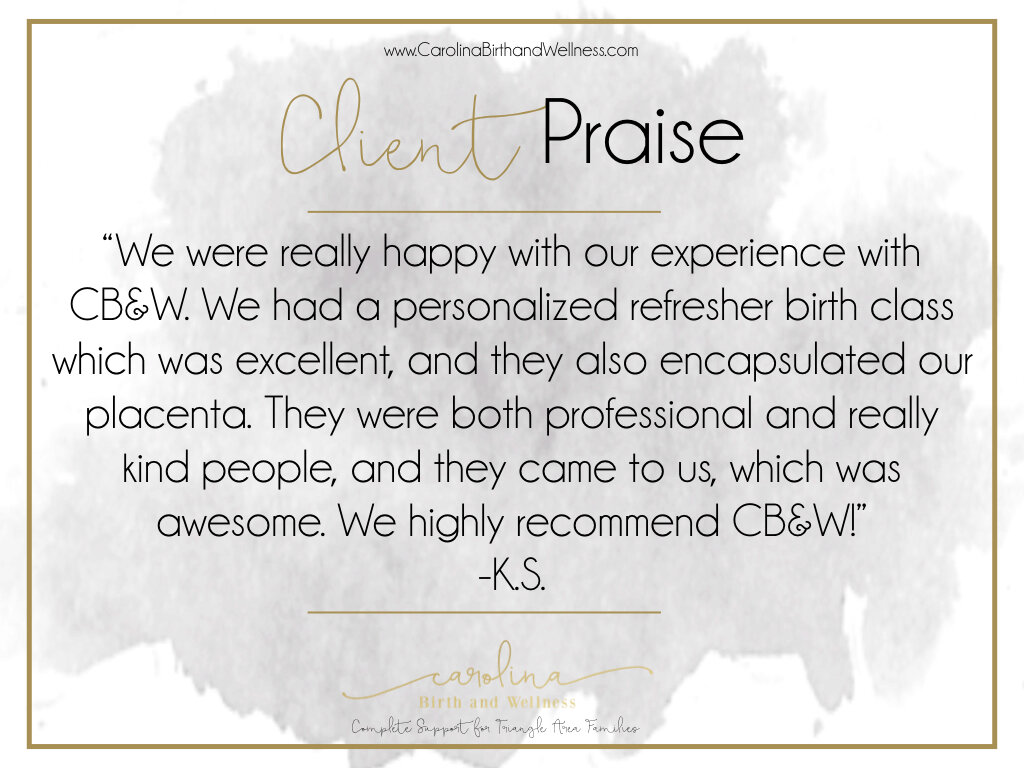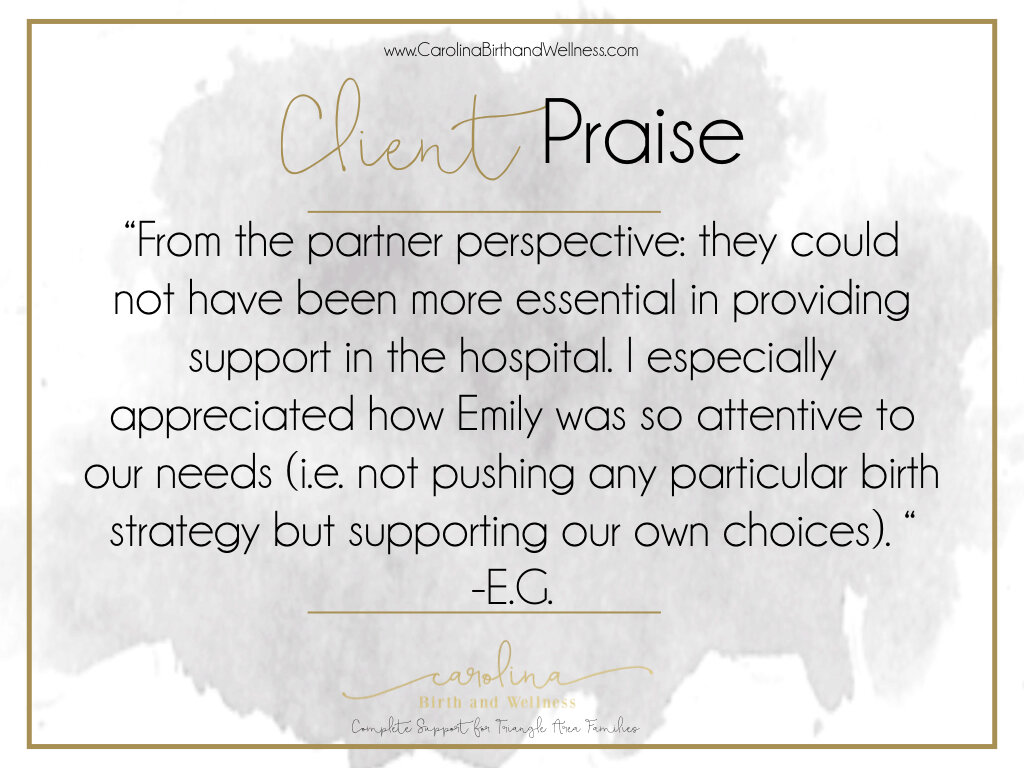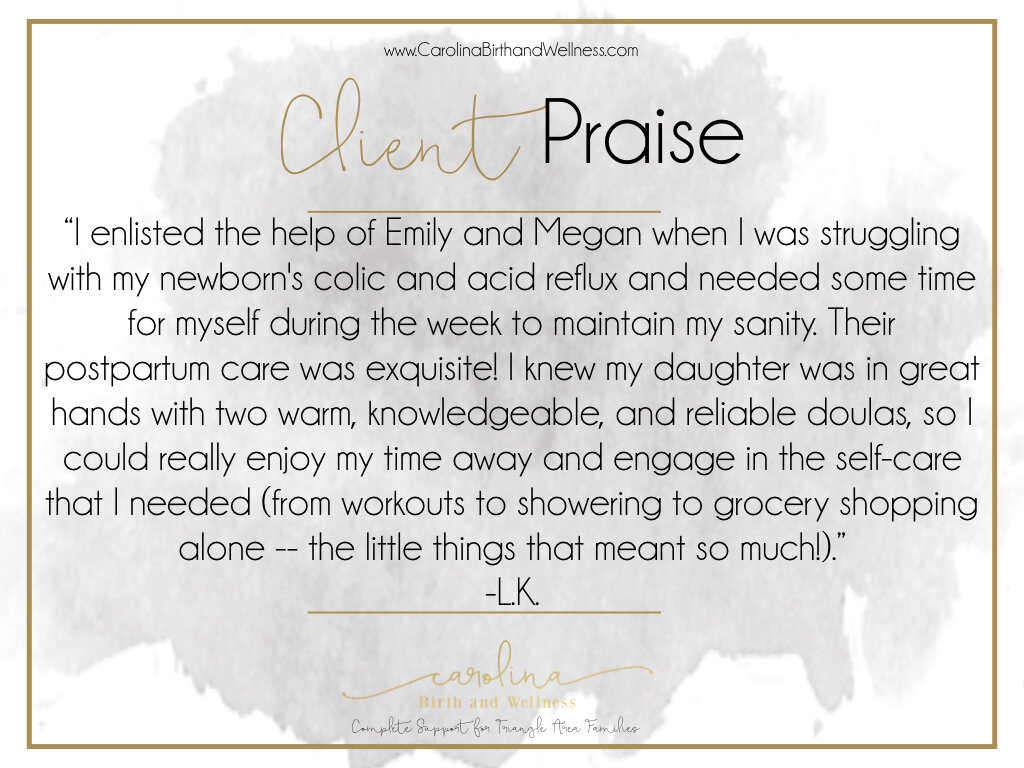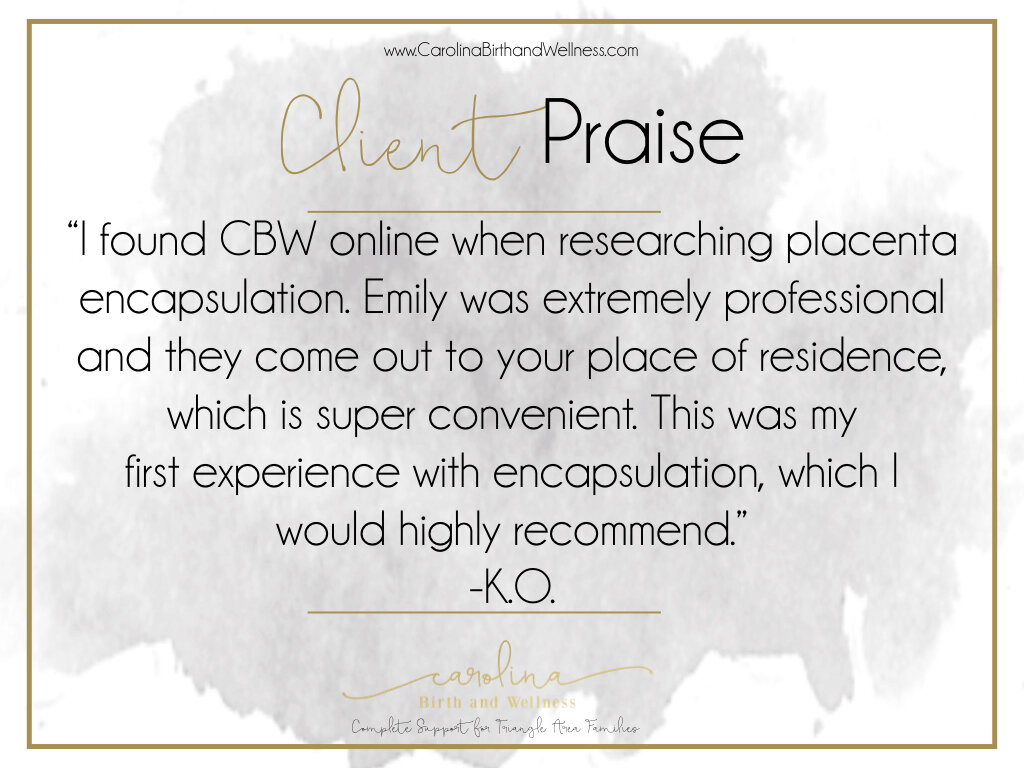Protocols Regarding Releasing a Patient’s Placenta
Whether you are going to have your placenta encapsulated, or want to bury your placenta in your yard, the first step to getting the placenta to your home is being prepare for how to obtain that placenta from your birthing location.
North Carolina Placenta Release Laws
In North Carolina, there are two requirements to having your placenta released to you after birth:
- You must have permission from your doctor or midwife.
- You must state why you would like to have it released.
We recommend that you speak with your doctor or midwife prior to birth so they are aware of your wishes to keep your placenta after birth. Most of the time, they will not object to this request, and if they do, there is always a valid medical reasons. Some examples of why it may not be released are because you developed an infection or because of a preexisting disease or illness.
The second requirement is also easily accomplished both prior to and after birth. On all of our transport kits we provide our placenta encapsulation clients, there is a tag saying that you would like to save your placenta because Carolina Birth and Wellness will be encapsulating it. That simple sentence satisfies the second requirement. If you choose to save your placenta but are choosing not to have us encapsulate your placenta, we recommend that you have your wishes written in your birth plan as well as verbally communicated to your doctor, midwife, or nurse as well as your support person and doula so that everyone is aware of your wishes.
Birth Center Births in Cary and Chapel Hill
We are so lucky to live in an area with two amazing birth centers who are well prepared for clients to save their placentas. After birth, your placenta will be placed in either a plastic tub or plastic bag, labeled, and placed either in your Carolina Birth and Wellness Transport Kit or the refrigerator at the birth center. Upon leaving the birth center, please make sure to bring your placenta to your home and one of our Placenta Encapsulation Specialists will arrive quickly to start the encapsulation process.
Hospital Births in Raleigh, Durham and Chapel Hill
If you choose to have your birth at a hospital, it is important that you either use our Transport Kit or provide your own cooler to store your placenta until it can be taken to your home. None of the hospitals will not allow you to store your placenta in a refrigerator on the hospital floor. Once your placenta arrives at your home, we can start encapsulating it, even if you have not been discharged it or we can wait until you return home to observe the process.
Safe Storage of Your Placenta
If you choose to consume your placenta, please remember the placenta needs to be stored properly while still in the hospital or birth center. This can be hard for the birthing person to remember, so it is important a plan is developed prior to birth so your doula and support person can be in charge of this process.
- Placenta can be at room temperature for 3 hours
- After 3 hours (or as soon as possible), it is recommended it be put on ice
- A placenta can be stored on ice that has not melted for 24 hours
- A placenta can be stored in the refrigerator for 3 days
- After 3 days, a placenta can be frozen and thawed later for safe consumption
Since you know the protocols of releasing your placenta to you by your chosen birthing location, it is time to start the encapsulation process today!


